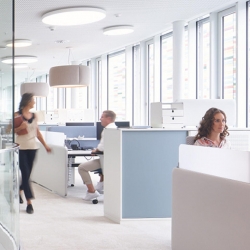January 30, 2024
Return to office mandates linked to higher business travel costs
 The majority of UK travel managers (89 percent) say travel is a growing business priority in 2024, anticipating increased budgets driven by return-to-office policies, inflation and ESG requirements. This is a key finding in new research by Uber for Business which claims to reveal a resurgent demand for business travel. The research, drawing insights from over 250 corporate travel managers across the UK, sets out to explore the top business travel trends and challenges to watch in 2024. In this landscape of shifting dynamics, where emphasis on ESG requirements is intensifying, there is an increasing need for innovative travel management solutions, the firm says. More →
The majority of UK travel managers (89 percent) say travel is a growing business priority in 2024, anticipating increased budgets driven by return-to-office policies, inflation and ESG requirements. This is a key finding in new research by Uber for Business which claims to reveal a resurgent demand for business travel. The research, drawing insights from over 250 corporate travel managers across the UK, sets out to explore the top business travel trends and challenges to watch in 2024. In this landscape of shifting dynamics, where emphasis on ESG requirements is intensifying, there is an increasing need for innovative travel management solutions, the firm says. More →






















 Organisations are having to rethink the form and function of their offices in ways unprecedented in their relatively short history. And perhaps the biggest challenge is to create places to work that reflect the organisation’s culture and the needs of the people who work there (some of the time). One possible framework for aligning an office design model with the culture of the organisation is presented in a supplement published in the current issue of
Organisations are having to rethink the form and function of their offices in ways unprecedented in their relatively short history. And perhaps the biggest challenge is to create places to work that reflect the organisation’s culture and the needs of the people who work there (some of the time). One possible framework for aligning an office design model with the culture of the organisation is presented in a supplement published in the current issue of











January 25, 2024
The final word on … responsibility
by Mark Eltringham • Business, Comment
More →